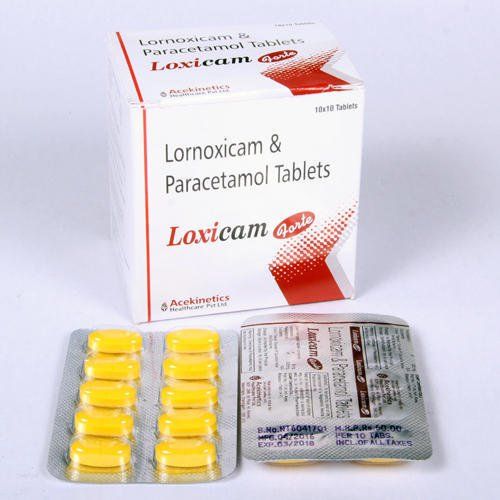This is an automatically translated article.
Salbutepharm is used to treat asthma and chronic obstructive pulmonary disease with the main active ingredient Salbutamol sulfate. Salbutepharm is currently a prescription drug, so it should only be used when prescribed by a doctor.
1. What is Salbutepharm?
Salbutepharm is a line of prescription drugs prescribed by doctors and pharmacists. The drug is prepared in the form of an injectable solution packed in boxes of 6 tubes x 1ml.
Salbutthepharm drug has the main ingredient Salbutamol sulfate corresponding to salbutamol base 0.5 mg and excipients Sodium chloride, sulfuric acid, sodium hydroxide, distilled water for injection, just enough for 1 tablet.
2. Indications for use of Salbutepharm
Salbutepharm is used in the following cases:
Used to test respiratory function:
Treatment to prevent bronchospasm and asthma attacks due to exercise. Treatment of reversible airway obstruction. Treatment of severe asthma and malignant asthma. Chronic bronchitis and alveolar dilation. Use in obstetrics:
Threatening premature birth, difficult birth. Hyperactivity at birth. Prevent uterine contractions during uterine surgery to get pregnant.
3. How to use Salbutepharm effectively?
Dosage of Salbutepharm will depend on the condition of the patient and each user will have the most appropriate dose.
Inhalation: 0.5 mg salbutamol sulfate subcutaneously, if necessary, repeat every 4 hours. Use in obstetrics: Mix 2.5 mg Salbutamol sulfate/200 ml Glucose 5% by slow IV infusion in emergency. Inject IM or IV 0.5 mg Salbutamol sulfate/time x 4 times/day for maintenance.
4. Contraindications to taking Salbutepharm
Salbutamol sulfate should not be used in the following cases:
Patients who are sensitive or allergic to Salbutamol sulfate or to any of the excipients contained in the drug. Treatment of threatened miscarriage in the first 3-6 months of pregnancy. Amniotic fluid infection. Heavy bleeding in the uterus. Severe heart disease. Pregnant many times. The mother is at risk of rupture of membranes, the cervix dilates more than 4 cm.... Eclampsia, pre-eclampsia.
5. Notes when using Salbutepharm
Patients need to carefully refer to the instruction sheet for using Salbutepharm and strictly follow the prescription prescribed by the doctor. In addition, you can refer to some of the following notes:
Caution when using Salbutamol sulfate for people with hyperthyroidism, coronary circulation disorders, ventricular arrhythmias, obstructive cardiomyopathy, hypertension, diabetes If you have diabetes, you are taking beta-blockers or MAOIs (monoamine oxidase inhibitors). Pregnant women treated for bronchospasm should not take Salbutamol sulfate, because it can affect uterine contractions especially during the first 3 months of pregnancy. Nursing mothers should not take Salbutamol sulfate. When salbutamol sulfate is prescribed, it is necessary to reduce the dose of other beta-agonists if taking them. Pregnancy: Salbutamol sulfate should be avoided during the first months of pregnancy if deemed unnecessary. Lactation: Salbutamol sulfate is excreted in breast milk, which may affect the infant while breastfeeding. The drug has no side effects on the ability to drive and use machines, so Salbutepharm can be used in this case.
6. What side effects does Salbutepharm cause?
During the use of Salbutepharm, patients may experience some undesirable side effects such as:
Palpitations Tachycardia Tachycardia Fingertips bronchospasm Dry mouth, throat irritation Hypokalemia Cramps Irritability headache Edema Urticaria Lower blood pressure Pulse collapse Inform your doctor or pharmacist of unwanted effects that patients experience when using Salbutepharm for timely treatment.
7. Salbutepharm drug interactions
Salbutepharm should not be combined with Halothan, because it can make the uterus more numb and increase the risk of bleeding, in addition, because the drug increases the reaction on the heart, it can increase the severity of arrhythmias. If the patient must be anesthetized with Halothan, treatment with salbutamol sulfate should be discontinued.
Caution must be exercised when salbutamol sulfate is co-administered with antidiabetic agents, as beta-agonist-induced hyperglycaemia may occur. If co-administration is necessary, the patient should be closely monitored for blood and urine. Insulin administration may be considered.
8. What should be done in case of an overdose of Salbutepharm?
When taking an overdose of Salbutamol sulfate, the following symptoms increase: Tachycardia, tremor, low blood pressure, fatigue, sweating. In case of overdose, beta-blockers can be used when necessary.
When using Salbutamol sulfate for people with asthma, diabetes, heart failure and chronic obstructive pulmonary disease - bronchial obstruction should be closely monitored.
Patients should carefully read the instructions for use of Salbutepharm before using.
Hopefully with the information provided above, patients can have more useful information about the Salbutepharm drug line. Patients should always strictly follow the medication instructions from a medical professional before using Salbutepharm, absolutely do not arbitrarily buy drugs to self-treat, which may cause unwanted side effects. to health.
Please dial HOTLINE for more information or register for an appointment HERE. Download MyVinmec app to make appointments faster and to manage your bookings easily.













